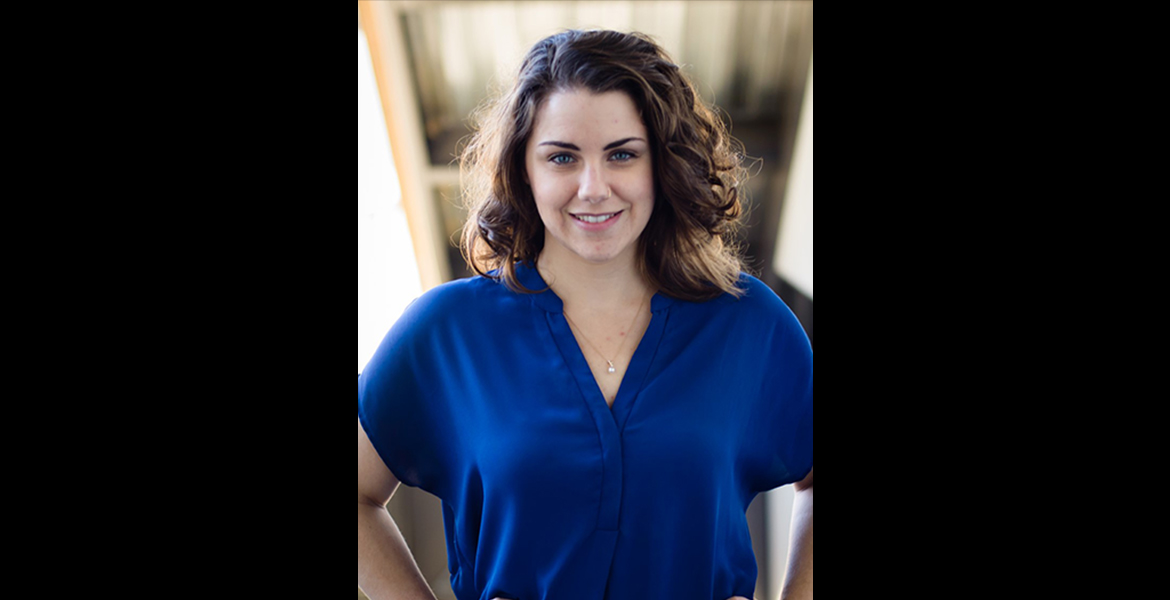
Art history alum shares experiences of staying in Italy amid COVID-19 outbreak
Tuesday, May 19, 2020
In November 2018, OSU art history graduate and Stanford Ph.D. candidate Lora Webb moved to Rome to study Byzantine art and manuscripts for two years. But when COVID-19 began to rapidly spread through the country in February and March of this year, Webb had to make a decision: stay put or come back to the U.S. She ultimately decided to remain in Italy.
“It's a pandemic, so it's not like you can outrun it,” Webb said. “It seems like the best way to get out of a pandemic is to just stay in place. That's all you can do. Otherwise, you're going to be in it longer. You're going to run straight into it.”
From mid-March until early May, the Stillwater native was on lockdown in her apartment near the Roman Forum, only leaving once a week to get groceries.
“We have a little form we have to fill out every time we go out of the house,” Webb said. “It’s ultimately a good thing because it makes you think about whether you really need to go out or not.”
Rome has since eased some of its stricter requirements for residents venturing outside, but Webb hopes a consciousness of needs over wants is something her fellow Oklahomans—and all Americans—take seriously. She warned that even if the virus seems far away, people shouldn’t let their guards down.
“I know it's really hard to stay home if it's not there at your doorstep,” Webb said. “I think it's doubly hard because it's a slow-moving disaster in a way. You can't see it. It's not like a tornado. But it's helpful to remember that waiting around is actually useful. It’s going to help the healthcare workers do their jobs better.”
To combat the restlessness that can accompany isolation, Webb has yoga, cooking and video chats on heavy rotation, including a daily afternoon call with other American graduate students who also stayed in Rome.
“It's been really helpful to check in and know that I'm not completely alone,” Webb said. “And if I needed to, I could walk across the city and talk to somebody—but through their window.”
Webb is scheduled to stay in Italy until November to finish her fellowship at the Bibliotheca Hertziana—an opportunity provided through a grant from the Samuel H. Kress Foundation. The prestigious, $30,000 per annum award is given to just six pre-doctoral students each year, allowing them to study at one of seven European art history research centers. Webb is specifically studying the role of eunuchs in the Byzantine court during the late medieval period.
“Especially in the ninth and 10th centuries, eunuchs became key, high-powered members of the imperial bureaucracy,” Webb explained. “I’m looking at three aspects of their life at the court: their artistic patronage, how they are represented, and how they themselves are aestheticized and objectified, becoming something akin to a work of art.”
And while the coronavirus has disrupted Webb’s normal schedule, she says the lockdown has given her time to read, write and even ponder the unique perspective she has on the pandemic as an art historian.
“I spend a good deal of time reading about various natural disasters, plagues and wars in history,” Webb said. “But because I'm an art historian, I also spend a lot of time reading about how people rebuild after all those disasters. It's really helpful to keep that in perspective—that humanity has gone through this many times and we've always come through it.”
Webb added that seeing people choose to do good during these uncertain times also brings her hope—a feeling shared by OSU art history professor Dr. Jennifer Borland. Borland, who taught Webb as an undergrad in the late 2000s, has specifically noticed how those in the art field have “stepped up to help.”
“I think we’ve all seen how much art means to people who are physically distanced from each other and from cultural institutions,” Borland said. “The proliferation of art-based and creative activity ideas, and the abundant programs that museums are putting online right now, indicate the importance of the arts for society in difficult times.”
And so while art historians and the world at large adjust to the present and reflect on the past, there are also happy thoughts of the not-so-distant future when lockdowns are lifted and some normalcy returns.
“I’m going to go on walks,” Webb said. “And I'm going to go to my favorite gelateria, talk to my favorite gelato lady and get some pistachio and mascarpone gelato.”
Webb is featured in Episode 26 of the Pokes PodCAS: "An art historian living through lockdown in Italy, with Lora Webb."
MEDIA CONTACT: Elizabeth Gosney | College of Arts and Sciences | 405-744-7497 | egosney@okstate.edu
